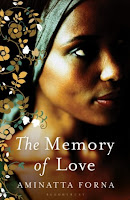We could all learn a great deal from Leymah Gbowee and the ordinary Liberian women like her who protested peacefully for the peace that their finally achieved. More than anything else I think this book, her memoirs, teaches us that you do not have to be out of the ordinary to make extraordinary achievements.
Throughout her account of how she came to be the Peace Activist and the 2011 Nobel Peace Prize recipient we know today, she tells recounts how she stumbled and continues to stumble. She made bad choices, had numerous failings, and was often close to losing hope. Above all else her story is incredibly empowering because through her life story, we see that things are possible. If we organise and work together, even the most powerless in society can stand up to the most powerful. She touches on issues which would seem obvious to the outside world but are so often overlooked by the many humanitarian programmes set up by the United Nations or International NGOs. Whether its disarmament programmes or election monitoring, the need for meaningful collaboration with people on the ground, who are in the communities we all so desperately want to 'save' is invaluable.
Mighty be our Powers should be on the required reading list for every humanitarian actor and election observer going to work in the field. The methods adopted by peace builders like Ms Gbowee are simple yet effective. They achieved more with limited resources than the heavily-funded peacekeeping missions, NGOs who continue to reinvent the same broken wheel or internationally-backed tribunals have been able to do with millions of dollars and years of work.I'm sure there's more to come from this formidable feminist because as she herself tells us in the final chapter, the story is not yet over!




